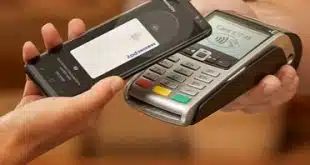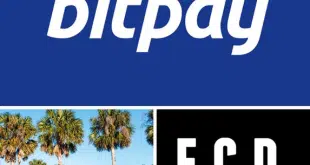The Kroger Co. on Monday sued Visa Inc. over the network’s alleged efforts to force the nation’s leading grocery-store chain to route EMV chip debit card transactions over Visa’s network by having customers sign for purchases rather than enter PINs.
Kroger, the largest retailer after Wal-Mart Stores Inc., according to the National Retail Federation, is alleging that Visa tried to prevent it from exercising the debit card transaction-routing rights afforded by the 2010 Dodd-Frank Act’s Durbin Amendment. Kroger thus joins Wal-Mart and The Home Depot Inc., which recently filed similar lawsuits against Visa, and in Home Depot’s case, also against MasterCard Inc.
The Durbin Amendment says each debit card must offer merchants a choice of at least two unaffiliated networks for transaction routing, and bars networks and issuers from interfering with such choices.
In an emailed statement, Visa denied the allegations and said it is guarding cardholders’ rights to choose how to authenticate a debit transaction.
“Visa does not require Kroger to route its transactions only through the Visa network,” the statement says. “Visa is focused on protecting a cardholder’s right to choose whether to sign or enter a PIN when completing their payment with a Visa debit card at checkout.”
But the suit Cincinnati-based Kroger filed in U.S. District Court in its home town describes a scenario in which Visa initially approved Kroger’s plans to have its new chip card-reading point-of-sale terminals prompt debit card users to enter a PIN instead of sign for purchases. But “in a sudden and drastic change of direction seemingly motivated by an intention to restrain competition” when it later realized the new system could divert transactions away from its own network, Visa declared that Kroger was violating its rules, according to the lawsuit.
The ensuing dispute led to a series of phone calls, letters, and meetings between Visa and Kroger executives and managers, which ended only last week when Kroger said it gave in to Visa’s demands. Kroger claims Visa stepped up the pressure by fining it $7 million, $3.1 million of which it has actually paid, and threatening more fines of $100,000 per day for alleged non-compliance.
And in a March 17 letter to Kroger’s merchant acquirer, Vantiv Inc., Visa reportedly said it might refuse to let Kroger continue accepting Visa-branded debit cards, only credit cards. The lawsuit calls that threat “no small matter,” since Visa debit cards accounted for $29 billion of its sales last year— “including about $10 billion Visa signature debit transactions and about $19 billion Visa PIN-debit transactions,” the complaint says. Visa debit transactions would account for 26% of Kroger’s revenues, based on the grocer’s $109.8 billion in total sales in fiscal 2015.
Cutting off Visa debit card acceptance “threatened catastrophic consequences for Kroger’s business, including turmoil at the check stand as Kroger customers were unable to pay, and the loss of Kroger customers who insisted on using a Visa debit card to pay and thus went elsewhere to shop,” the lawsuit says.
Visa also “suspended a pricing agreement with Kroger and informed Kroger that Visa is going to increase the prices that Visa charges Kroger to process debit and credit card transactions,” the suit says.
The roots of the dispute date to a phone call a Kroger executive had with at least three Visa employees on Feb. 11, 2015. The Kroger executive outlined Kroger’s plan to have its new chip-enabled POS terminals prompt customers to enter a PIN whenever the terminal detected a Visa chip debit card. Kroger was embarking on a multi-million-dollar project to deploy 54,000 EMV readers in 3,200 stores to meet the card networks’ Oct. 1, 2015, EMV liability shifts. The shifts would force merchants to cover counterfeit card fraud losses if their terminals didn’t read chip cards.
Kroger wanted PIN authentication because PIN transactions cost merchants less to accept and are much less prone to fraud than signature debit, according to Kroger. Visa signed off on the plan, according to Kroger.
But Visa eventually realized that PIN-debit networks were coming out with new “PINless” services that could route signature-based transactions and provide new competition to Visa, according to the suit. A year after signing off on Kroger’s plans, Visa informed Vantiv that Kroger’s POS practices violated Visa’s honor-all-cards rules because “they were not allowing [Visa] cardholders to select a Visa transaction,” the suit says. Kroger calls that stance a violation of the Federal Reserve’s rule implementing the Durbin Amendment because it infringes on the merchant’s transaction-routing choice.
In addition, Visa wanted to enforce technical specifications in its so-called Transaction Acceptance Device Guide (TADG) that Kroger claims would force POS terminals to display application identifiers (AIDs) for transaction type that would be confusing to consumers.
The back-and-forth between Kroger and Visa went on until this month, when Kroger said it decided “to capitulate to Visa’s demands.” That came after Visa reportedly said it would stop the fines and remove the threat of no debit card acceptance if the retailer eliminated the PIN requirement and stopped PINless routing.
On June 20, Kroger instructed Vantiv to stop routing Visa signature debit transactions to third-party debit networks. The next day, Vantiv confirmed to Kroger that it had stopped doing so.
“This lawsuit follows,” says the complaint. Kroger is seeking unspecified damages and court declarations that Visa’s rules and technical specs cannot interfere with routing choice.





